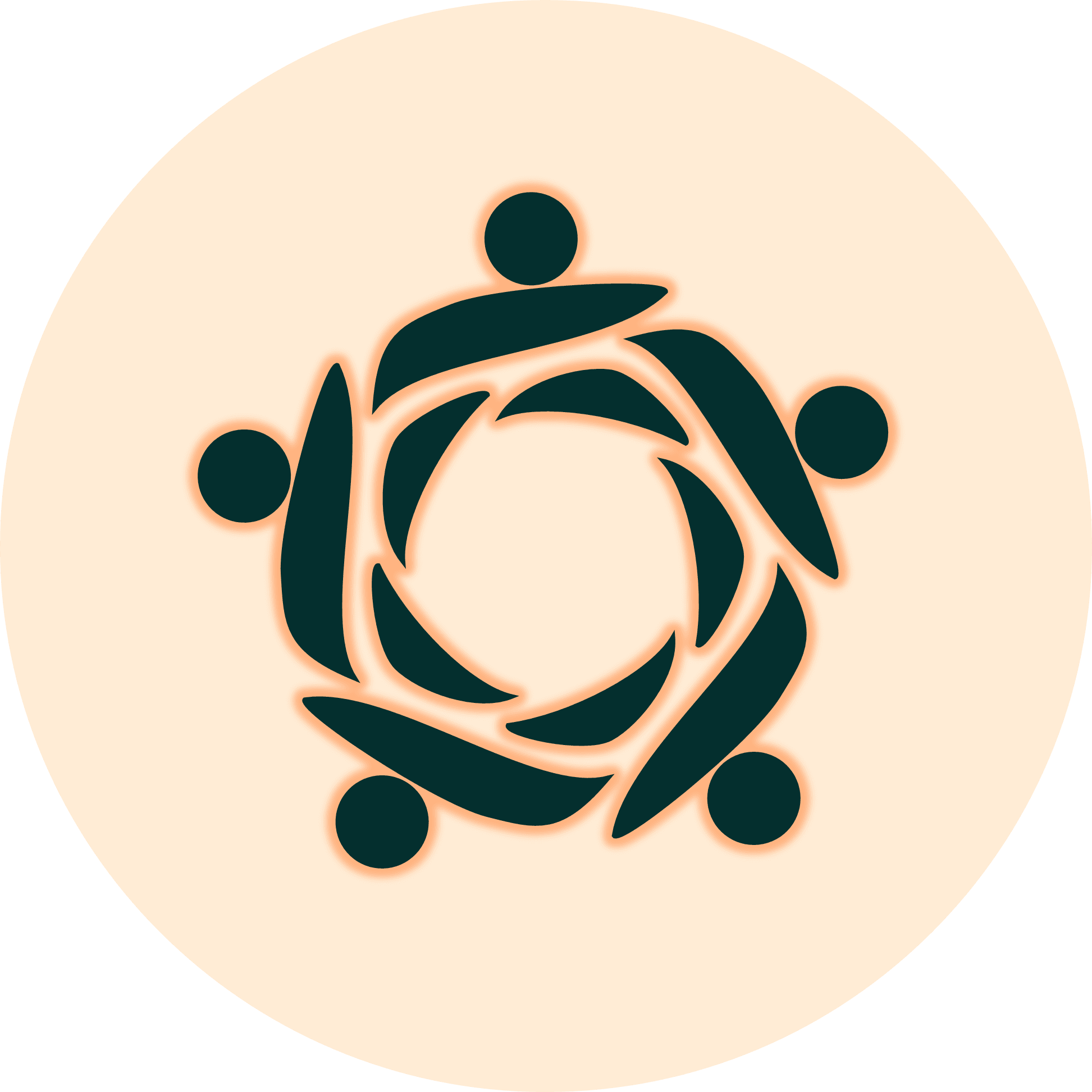Ligne directrice pour la communauté
Faites la promotion de l’importance de la connexion sociale
Toutes les organisations jouent un rôle important dans la facilitation des interactions sociales et la création de normes qui simplifient les connexions sociales.
- Elles doivent jouer un rôle actif dans la promotion d'une prise de conscience généralisée de l'importance des liens sociaux par le biais de campagnes de promotion de la santé, de dialogues communautaires, de programmes d'éducation professionnelle, de l'élaboration de politiques et d'autres initiatives.



Considérations supplémentaires
Compte tenu de l’impact significatif des connexions sociales sur la santé et le bien-être, il est urgent d’adopter une approche holistique et globale pour sensibiliser à leur importance. Le bien-être dépasse la santé physique et mentale pour inclure le bien-être social et d’autres déterminants clés. Reconnaître que la connexion sociale est aussi cruciale que les autres aspects de la santé est essentiel pour élaborer des interventions communautaires efficaces.
Les méthodes visant à promouvoir les connexions sociales doivent s’appuyer sur des stratégies complètes qui mettent en lumière leur rôle central et les effets néfastes de la solitude et de l’isolement. Ces stratégies doivent mobiliser les secteurs à but non lucratif et privé pour atteindre leurs objectifs, maximisant ainsi la portée des efforts déployés. Des campagnes multimédias intensives peuvent toucher un large public rapidement, diffusant efficacement des informations et sensibilisant à l’importance de maintenir des connexions sociales. Le développement de programmes éducatifs dans les écoles et les centres communautaires peut enseigner aux jeunes et aux adultes la valeur de construire et de maintenir des relations saines.
En outre, les interventions de groupe ou en tête-à-tête peuvent offrir un soutien et une éducation personnalisés, aidant les individus à comprendre et à surmonter les obstacles à la connectivité sociale. Ces interventions sont particulièrement efficaces lorsqu’elles impliquent des leaders communautaires et organisationnels, comme les propriétaires, les employeurs et les commerçants, qui jouent un rôle clé dans la création d’espaces favorisant les interactions sociales et les relations.
Les programmes de formation en milieu de travail devraient également intégrer des modules sur l’importance de la connectivité sociale pour la santé. Ces formations peuvent équiper les individus de connaissances et de compétences pour encourager un environnement de travail socialement favorable, où les connexions interpersonnelles font partie intégrante des pratiques professionnelles quotidiennes.
En adoptant ces solutions programmatiques pour sensibiliser et éduquer, les communautés peuvent encourager un changement vers des normes sociales plus inclusives et solidaires. Ce modèle complet répond non seulement aux besoins immédiats des individus en situation d’isolement, mais renforce également un tissu social plus solide et résilient, reconnaissant le bien-être social comme une composante essentielle de la santé globale.
Ressources supplémentaires

L’Initiative Mondiale sur la Solitude et les Connexions
Composée d'organisations nationales engagées à mettre fin à la solitude et à l'isolement social, cette initiative soutient la diffusion d'approches nationales à grande échelle visant à renforcer les connexions sociales.

Campagne pour Mettre Fin à la Solitude
Organisation basée au Royaume-Uni, elle se concentre sur la réduction de la solitude et de l'isolement social. Elle sensibilise le public, plaide en faveur de changements systémiques et fournit des ressources pour aider les communautés, les entreprises et les prestataires de soins de santé à créer des environnements propices à l’épanouissement des connexions significatives.

Mettre Fin à la Solitude Ensemble
Initiative nationale australienne, elle s'attaque à la solitude grâce à la recherche, au plaidoyer et à l'action communautaire. L'organisation collabore avec divers acteurs pour élaborer des stratégies, fournir des ressources et encourager les connexions sociales, afin de créer une société plus compatissante.

Fondation pour la Connexion Sociale
Dédiée à la lutte contre l'isolement social, elle encourage la création de liens significatifs. Elle collabore avec des chercheurs, des décideurs politiques et des organisations communautaires pour promouvoir les meilleures pratiques, développer des outils et créer des environnements favorisant des relations solides et bienveillantes.

Alliance Canadienne pour la Connexion Sociale et la Santé
Réseau dédié à l’avancement de la recherche, des politiques et des pratiques pour améliorer les connexions sociales et la santé publique au Canada. Il rassemble divers acteurs pour promouvoir des stratégies fondées sur des données probantes et plaider en faveur de politiques renforçant le bien-être et les liens sociaux.

Coalition pour Mettre Fin à l’Isolement Social et à la Solitude
Organisation de plaidoyer basée aux États-Unis, elle se consacre à la réduction de l'isolement social et de la solitude. Elle réunit des prestataires de soins de santé, des organisations communautaires, des décideurs politiques et des chercheurs pour promouvoir l'inclusion sociale et les liens humains grâce à l’éducation, aux ressources et aux changements politiques.

Boîte à Outils du Bien-être Social de la NIH
Propose des stratégies pour améliorer le bien-être social, notamment des conseils pour établir des relations saines, communiquer efficacement et trouver du soutien social. Elle met en avant l'importance du bien-être social pour la santé globale.

Expose des stratégies pour lutter contre la déconnexion sociale, notamment en renforçant les infrastructures sociales et en favorisant une culture de la connexion, dans le but de promouvoir une société en meilleure santé.

Commission de l’OMS sur la Connexion Sociale
Traite des préoccupations mondiales liées à l'isolement social et à la solitude, en les associant à de graves répercussions sur la santé. Elle promeut des stratégies fondées sur des données probantes pour renforcer les connexions sociales et réduire la solitude à l’échelle mondiale.

Une initiative mondiale visant à promouvoir des connexions humaines authentiques pour lutter contre l'isolement social. Elle propose des programmes, des événements et des ressources encourageant les interactions en personne et l’empathie, afin de construire des communautés plus fortes et inclusives.

